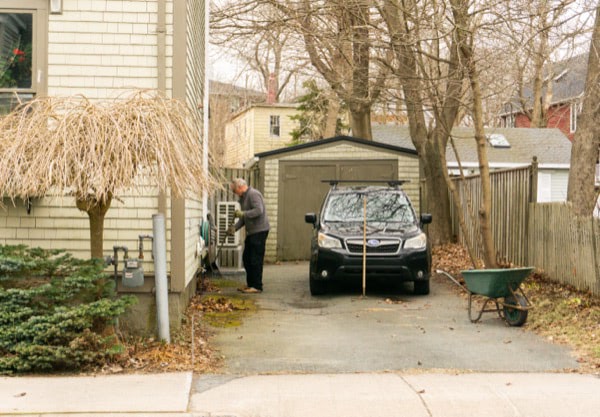Do you need to consider minimizing your spending? Here are some tips to help you curb your spending habits this year!

How does the Halifax market look heading into spring?
As we approach the spring season, you might be wondering how the Halifax market is going to perform. It’s been busy for two years now, and there haven’t been many signs it’s going to slow down. Prices are still increasing, demand is high, and spring is already a busy season for real estate. Here’s what you should expect as a buyer, seller, or current home owner!
Price update
Homes are still becoming increasingly expensive as we move into the spring season. Home prices have been rising at incredible rates for over two years now, so this likely isn’t a big surprise. The average house price in Halifax, according to The Canadian Magazine of Immigration, is $490,127 as of the end of 2021. This is compared to $433,308 from January 2021. Of course, prices depend on exact location, state of the home, size, property type, and access to other amenities. Overall, prices are climbing steadily, but we’ll have to wait and see if increased interest rates slow these rises down (more on that below).
Supply and demand
Part of the reason housing prices are increasing so dramatically is due to high demand and low supply. We’re still seeing many people moving from other provinces to Nova Scotia, increasing demand for housing here in an already busy market. Given the competitive nature of the Halifax market, buyers continue to scoop homes up quickly. The pandemic has caused many people to reevaluate their housing needs, resulting in relocating to different areas to have more space in and outside of their homes. The demand for housing paired with low supply, also spurred on by high costs of building materials and slow builds, has created a firm seller’s market.
Interest rates
Last week, the Bank of Canada held its second interest rate announcement of the year. As predicted, the bank finally increased the target for the overnight rate after two years of historic lows. The bank increased the overnight rate from 0.25 per cent to 0.50 per cent. To ease Canadians and the economy back in, the bank did not make a dramatic increase to rates. While inflation is extremely high, raising rates too much risked triggering a recession, so the bank has a fine line to walk. These increased rates mean borrowing will become more expensive, including for mortgages. This might slow down the Halifax market a tiny bit as the days of cheap borrowing and increased buying power are disappearing, but we don’t expect demand to drop off completely.
For buyers…
So, what are your options if you’re a hopeful buyer in the Halifax market? This market is undoubtedly still competitive, even with interest rate increases. Rate increases might impact a few people’s decisions to buy, but rates are still low enough that most people who intended to buy will. With that in mind, you should expect price increases to remain fairly steady and that you will still likely face some competition amongst other buyers. Apart from raging demand, there is also low housing supply. High costs of building materials and delayed building supplies have slowed down housing starts and renovations, putting even fewer homes on the market.
For sellers…
We’re still in a seller’s market, so if you’re hoping to sell your house, you’re likely in a good position. Housing prices are still increasing, so you will likely get a hefty return on your investment if you sell this spring or summer. The spring market is busy, so you will probably face a lot of demand. Make sure you still use a real estate agent and get an appraisal to determine an appropriate value for your property so you don’t list over or under what is reasonable. You don’t want to miss out on the value of your home, but you also don’t want to ask for too much and risk having to settle for much less.
For home owners…
If you’re an existing home owner, is it still a good time to refinance your mortgage? Since rates are still low, this could definitely be a beneficial move. However, even when rates are at their lowest, you need to think carefully about your situation before refinancing. You could secure a better rate, but you also need to evaluate your employment and income, and how much it might cost you to break your current terms. Read more about the decision to refinance here.
The Halifax market is likely going to be busy this spring, just like in years past. The addition of higher interest rates might make a small dent in demand, but buyers shouldn’t rely on that to lower prices or decrease competition too much. Sellers are likely to have a good experience as long as they use the help of a professional, and home owners may be in a good position to refinance. In any case, using a mortgage broker for guidance will make your experience much smoother!
If you have questions about your position in this market, get in touch with us at Clinton Wilkins Mortgage Team! You can call us at (902) 482-2770 or contact us here.


